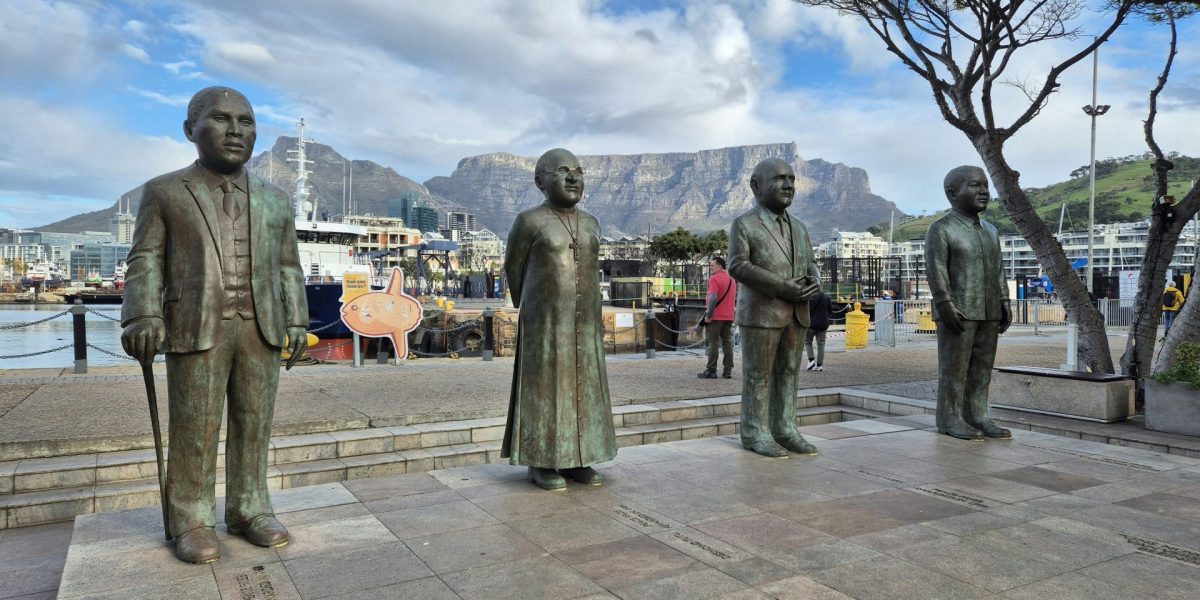SA’s national dialogue initiative has sparked hope and scepticism countrywide. While some view it as a crucial opportunity for national renewal, others dismiss it as yet another elite-driven exercise that will fail to address the country’s pressing challenges of unemployment, inequality and climate change.
These valid concerns are rooted in our history of well-intentioned dialogues that have tended to prioritise form over substance, leaving citizens disillusioned.
The current moment presents a unique opportunity to break from the past through participatory futures – an innovative approach combining grassroots engagement with digital tools and citizen sensor networks.
This method offers a practical pathway to ensure the dialogue is genuinely inclusive, action-oriented and accountable to all South Africans.
Traditional national dialogues often marginalise grassroots voices, but participatory methods fundamentally change this dynamic.
The presence of a diverse eminent persons group, including sports heroes and even grassroots activists, sends a message that this moment can be different.
Citizen assemblies – successfully implemented in Ireland’s climate reforms, Colombia’s post-conflict reconciliation and movements such as Enspiral and Sociocracy – demonstrate how randomly selected but demographically representative groups can deliberate on key issues more effectively than political insiders alone.
When combined with community visioning exercises that centre marginalised perspectives through physical and digital platforms, these approaches ensure policy reflects lived experience rather than elite assumptions.
The citizen sensor network model, already used in SA, represents a particularly promising innovation. By training youth volunteers across all nine provinces to collect real-time community data through mobile apps, the software gains insights traditional methods might miss.
Using cloud-based analysis tools, these networks reveal unexpected patterns – such as how power outages worsen gender-based violence in townships – providing policymakers with crucial, ground-level intelligence.
Cost concerns about large-scale participation are addressed through smart digital solutions. Platforms such as Pol.is, used effectively in Taiwan, employ AI to map consensus and dissent at scale, helping focus discussions on shared priorities rather than polarised positions.
Local innovations such as GovChat demonstrate how simple apps can bridge the gap between communities and officials, while USSD and WhatsApp surveys ensure rural voices are heard despite connectivity challenges. In Egypt, the Alexandria Dialogues used futures thinking to reimagine development strategies with a focus on youth, education, and the future of work.
True accountability requires more than good intentions. Public dashboards tracking progress in real time create necessary transparency. Independent civil society oversight panels can monitor implementation, ensuring commitments translate to action. These mechanisms are crucial because the dialogue’s success must be measured in concrete outcomes, not just eloquent declarations.
Participatory futures create structured pathways from discussion to implementation. Policy prototyping allows communities to test solutions in controlled environments before scaling, as seen in Taiwan’s vTaiwan experiments.
Feedback loops using these digital tools can demonstrate how citizen input shapes decisions, rebuilding eroded trust. Paid youth acting as citizen sensor networks can provide continuous monitoring, transforming one-time consultations into sustained accountability.
A healthy democracy doesn’t suppress dissent but channels it productively. Methods such as deliberative polling, successfully used in Japan’s future design councils, create spaces for constructive disagreement. Thematic inclusion ensures critics – from land activists to climate justice advocates – help shape outcomes rather than being marginalised. This messy, iterative process strengthens rather than weakens democratic outcomes.
For SA’s national dialogue to succeed where others have failed, it must embrace three key principles. It should expand citizen sensor networks nationally, ensuring grassroots concerns drive the agenda. It must adopt digital tools to track consensus and commitments transparently. Most importantly, it must judge success by tangible policy changes that improve lives.
Colombia’s peace process teaches us that inclusive democracy is messy but essential. As we stand at this crossroad, we can choose the challenging but transformative path, one that harnesses traditional wisdom and modern tools to build a democracy worthy of its people. The alternative – another exclusive exercise in political theatre – would represent an unforgivable missed opportunity.
The time for half-measures has passed. This dialogue can mark the beginning of a new social contract that becomes a continual social renewal ecosystem, or risk becoming another footnote in our history of broken promises. The methods exist. The tools are proven. What remains is the collective will to use them. Together, we can build an SA that works for all its people.
This article was first published in Business Day.








